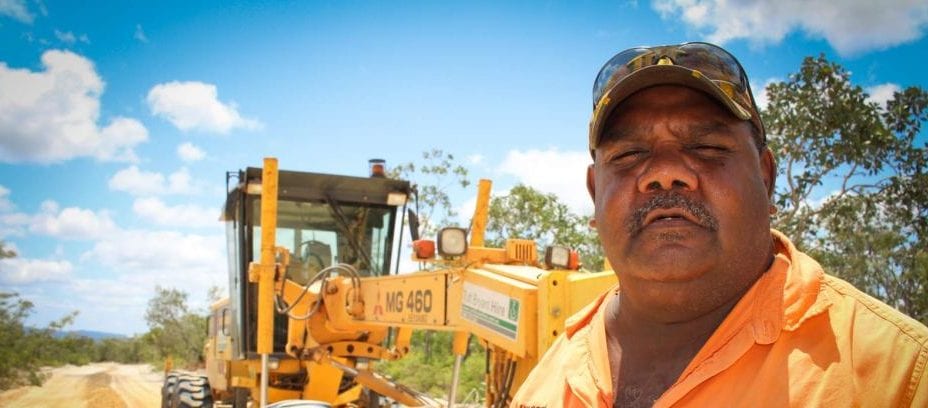News
Cape York community partnering with corporate world to develop home-grown entrepreneurs

New businesses are starting up in the remote Cape York community of Lockhart River as part of the local council’s push to empower home-grown entrepreneurship.
Mayor Wayne Butcher said building a private sector and supporting a local economy was key to changing the dynamics in remote Aboriginal communities where employment and economic opportunities were limited.
“That’s always going to be the challenge but what we’ve managed to do well is scope what business opportunities [exist] in our community,” Cr Butcher said.
“They’ve always been there, it’s just a matter of bringing them to the surface.”
Lockhart River Aboriginal Shire Council will tender out works including garbage collection, parks and gardens maintenance and catering services to support the establishment of local businesses.
Cr Butcher said Natural Disaster Relief and Recovery Arrangements (NDRRA) funding had already provided opportunity for delivering local projects by local people.
“The policy at the national scale actually supports local businesses … so three local people have gone out and leased machinery to deliver the projects for us, established their own business and also employed skilled Indigenous machinery operators,” Cr Butcher said.
“Eighty per cent of the work will be delivered by 100 per cent owned Lockhart businesses that have 100 per cent Indigenous-skilled workforce.”
Working with the private sector to deliver positive outcomes
Lockhart River has also partnered with Bond University to create better educational pathways for children from the Cape York community, a program that has helped support council’s economic vision.
The university has made two visits in three years, bringing education and business leaders to Lockhart River to get a first-hand understanding of the social issues in remote communities.
Andrew Weaver, executive general manager of ISS Facility Services, a global facility management company delivering cleaning, catering and property services, visited Lockhart River through the program in July.
A man stands in front of a large tree in a park.
PHOTO: Andrew Weaver, executive general manager of ISS Facility Services Australia, visited Lockhart River and helped pilot a locally owned and operated cleaning business. (ABC Far North: Brendan Mounter)
“I was pretty naive about the Aboriginal community until I went to Lockhart, I was like a duck out of water,” Mr Weaver said.
“I listened and listened and I thought ‘Here’s an opportunity’.”
Mr Weaver has since lent his expertise to help pilot a locally owned and operated cleaning business under a not-for-profit model, which will reinvest money back into community pursuits.
Four community members have been employed to deliver the first contract at Lockhart River School from January 2017.
Mr Weaver was confident the model Lockhart River had established could be successful in other remote communities.
“We’ll take ownership of the start-up so we can set-up a company that’s not driven by financial impact straightaway, we realised the value of that, our friends in Pathways will support the labour hire model and keep people at work,” Mr Weaver said.
“We’ve got an ability now to branch out to Weipa and a place in WA, now we’ve got over the big speed hump [establishing the model].”
The target is to employ 25 local people across three communities in the new year.
‘Something that’s been missing’
Cr Butcher welcomed the input from the private sector and believed there was great scope for cross-cultural learning.
“It’s something that’s been missing for a long time, in Lockhart in particular, because of the norm of the welfare cycle, the norm of government control and before that religious control,” Mr Butcher said.
“The private sector, it’s different, and I think that’s what’s going to change the whole social fabric of our community.
“Once people start earning proper money, then they can afford to buy assets, vehicles, boats and home ownership might finally become a reality.”
Source: abc.net.au
© 2019-2020 Black & More. All rights reserved.
Website Developed by Strategic Digital Marketing Sunshine Coast
Website Developed by Strategic Digital Marketing Sunshine Coast
